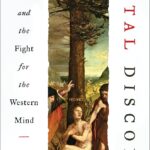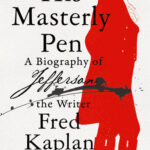An essay in today’s New York Times eloquently sums up the state we find ourselves in today with regard to American media. It’s written by Andrew Kohut, director of the Pew Research Center for the People and the Press.
In his essay, Kohut writes, “Americans are often ridiculed for lacking knowledge of world news. In August 1997, for example, a Pew Research Center survey found that 79 percent of Americans were aware that the boxer Mike Tyson had bitten the ear of an opponent, while only 40 percent knew that Britain had returned Hong Kong to China that same summer.”
Yet, despite this information deficit, writes Kohut, Americans believe in public opinion’s ability to “fill in the holes and make rational choices” when it comes to important group activity such as electing the next president of the United States.
“Sam Popkin, a professor of political science at the University of California, calls it “gut rationality” – a sort of homing device that allows the public to quickly combine its bedrock beliefs with a smattering of new information and make, on the whole, reasoned decisions,” writes Kohut in the Times. “People learn from past experiences, daily life and the news media, and they flesh out their world view based on their default values, he concludes.
“This process may be threatened, not enhanced, however, by the explosion of shortcuts available.”
“Sources for information are more bountiful – and arguably more partisan – than ever before, says Kohut, “And this freewheeling bazaar of news choices has generated an audience that is increasingly self-segregating. Consider that a plurality of Fox News Channel’s audience is now Republican, while a plurality of CNN’s audience now consists of Democrats, according to Pew’s latest biennial survey of news habits. That poll also showed that perceptions of “media credibility” – that is, whether people think a particular news outlet can be trusted – are now more driven by ideology and partisanship than at any point in nearly 20 years of surveys.”
In citing work by Cass R. Sunstein, a professor of law at the University of Chicago, Kohut arrives at his central point. In his 2001 book “Republic.com” Prof. Sunstein wrote that the Internet’s ability to provide personalized news – to permit users to filter out those things they don’t care about – posed a threat to democracy itself.
“Democracy, he argued, depends in part on people’s being exposed to information they would not necessarily have chosen for themselves,” writes Kohut. “So, too, might the concept of gut rationality be endangered in a filtered world, where people see only what they want to see, hear only what they want to hear, read only what they want to read.”






